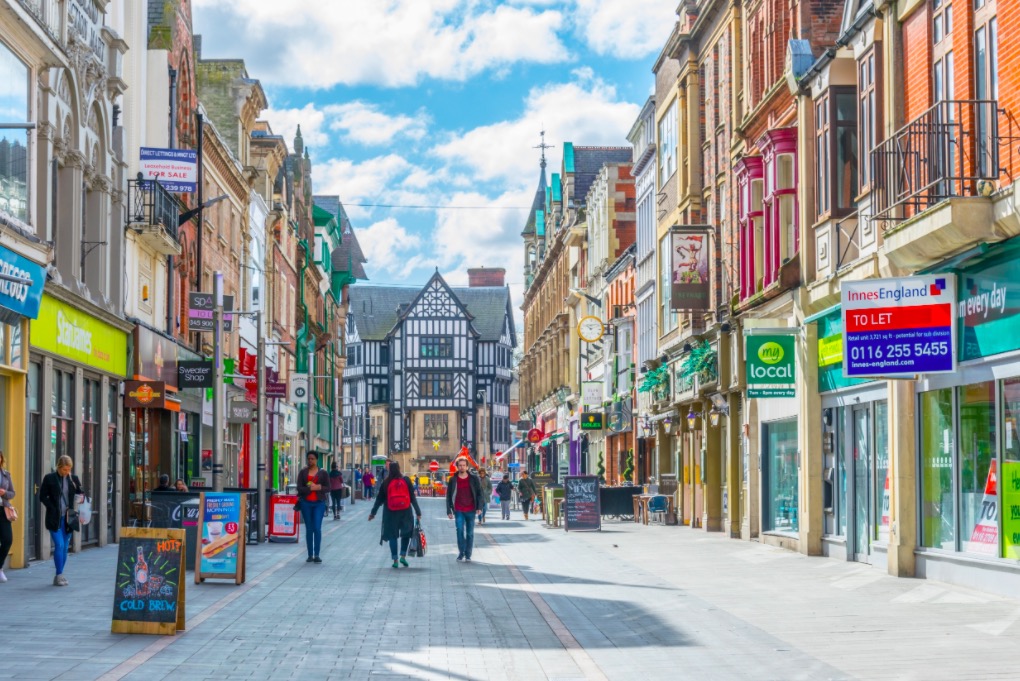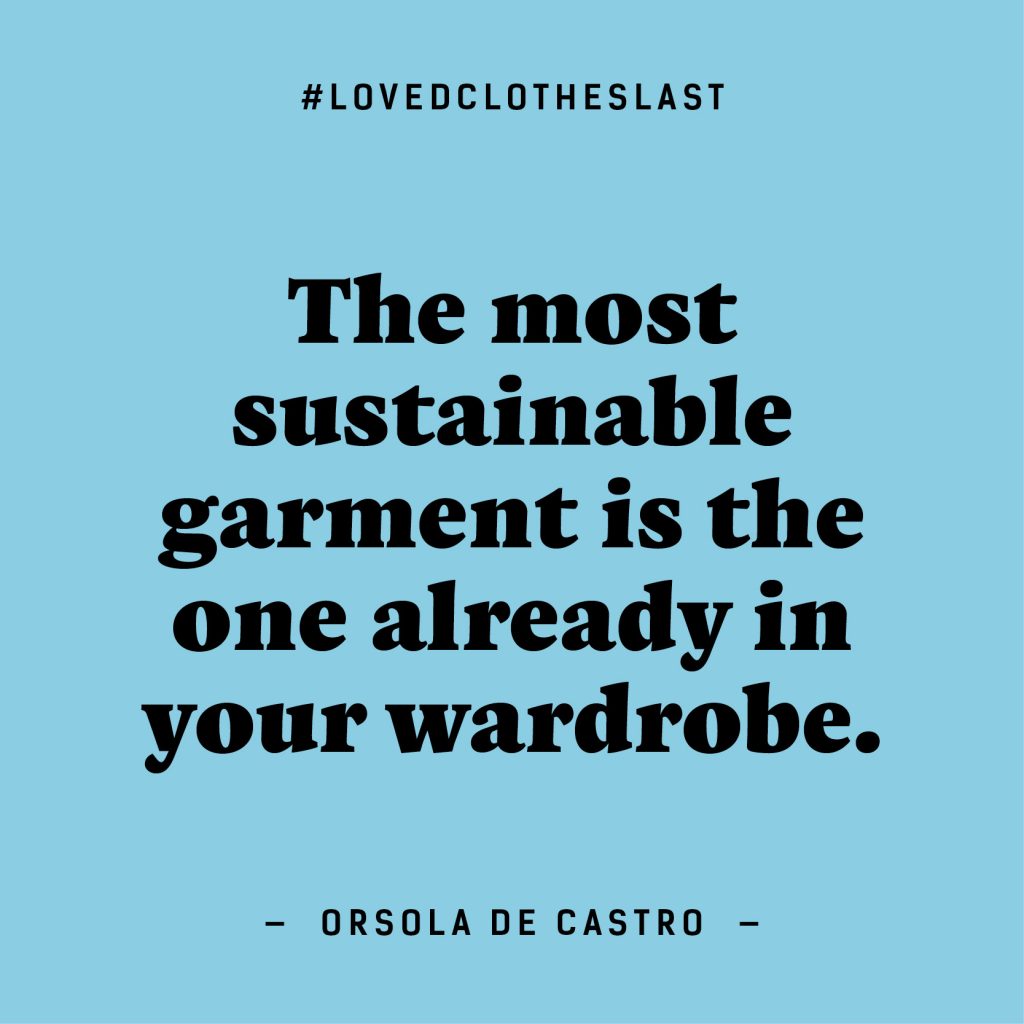I’ll shed no tears for Boohoo
When discussing the labour issues behind our labels, we often look to Bangladesh or India. Accusations of modern-day slavery in Leicester show nowhere is immune from the scourge of exploitation
I am angry. I am frustrated. And to be honest, I am rather embarrassed and heartbroken.
This week’s exposé of modern-day slavery in Leicester pretty much epitomises everything I loathe about the industry I have been part of my entire working life.
For years, those of us on the sustainable end of the business have done our best to shout about our trade’s failings. But just when you think the fashion industry couldn’t get any worse, we find out that not only is modern day slavery happening right here in the UK, but that profits are being prioritised over basic employment laws, not to mention the safety of the nation. Why is this industry still getting it so wrong?
Bad practice in Britain
I am sure many of you have seen the accusations of slave labour levelled at multiple factories in Leicester. But while they’ve been making headlines this week, this is not a new phenomenon. Numerous reports over the years have raised the alarm over pay rates as low as £3.50 an hour. Yes, you read that right. And yes, that’s less than half the legal £8.72 minimum wage for those aged 25 and over.
According to the charity Labour Behind the Label, intimidation of vulnerable workers at these plants was first reported as far back as May 2018, when the Financial Times investigated Britain’s so-called ‘dark factories’. Which begs the question: why are they still here, and how have they managed to survive?

Last week, those same illegal sweatshops were brought back into the spotlight following an undercover operation by The Sunday Times, investigating links between these disreputable producers and the coronavirus outbreak that forced Leicester into England’s first localised lockdown. Given the lax safety measures alleged, viral spread should be of little surprise.
The reporter who went undercover this month highlighted cramped conditions, a lack of face masks and workers being forced to continue working despite having COVID-19 symptoms. He also obtained covert video footage of himself packing garments made in the factory into boxes carrying the label of Nasty Gal, a fast fashion line owned by UK retail giant Boohoo.
The fastest fashion giant
Now, of course, Boohoo is the UK’s fastest growing fast-fashion retailer. Founded in 2006, it has a market value of £4.6 billion, gleaned from an online business model focused on being ultra-fast and ridiculously cheap – around 3000 styles are added to the site each week with an average price point of just £13.
Boohoo sells own-brand clothing, shoes, accessories and beauty products targeted at 16 to 40-year-olds, while the group has grown to include PrettyLittleThing, Nasty Gal and, since a spending spree in June, Oasis, Warehouse, Karen Millen and Coast. The firm’s management had predicted growth of 25 per cent overall for the year 2020 to 21. Due to a surge in online shopping during the COVID-19 lockdown, sales have increased by 44 per cent.
According to Labour Behind the Label, increased demand in lockdown has left Boohoo Group Ltd accounting for almost 80 per cent of production in Leicester. And it is within these factories, primarily staffed by BAME and immigrant workers, that allegations of links to modern slavery and trafficking have been mounting.

Indeed, it is now widely believed that many of the workers involved in the Leicester scandal lack documented residency status or entitlement to work, leading them to accept poor conditions in exchange for a job – even one without formal contracts or minimum wages. The situation is further complicated by a UK Home Office policy which focusses on reducing immigration figures by restricting the freedoms of people who are deemed to be in the UK illegally. The end result is that these illegal working conditions go unreported by garment workers too afraid to speak up.
So, we are left with an extraordinary situation where some of the UK’s largest, best-known and most profitable brands are benefiting from the ‘sustainable’ practice of nearshoring or onshoring, reducing their carbon footprint by producing locally in the UK, while not adhering to basic employment laws. Undocumented workers can’t unionise, after all. And by operating on home turf in this way, these brands can get away with offering very little transparency – far fewer questions are asked of their supply chains than are asked of brands who source from places such as Bangladesh and Cambodia.
Unsurprisingly, the Government has asked the National Crime Agency to investigate and, in the midst of the media firestorm, Home Secretary Priti Patel has been very vocal on the matter. But this is the same government that, in June 2019, rejected all recommendations from a report aimed at forcing the fashion industry pay to clean up its act.
Failure to act
At the time, Environmental Audit Committee Chair, Mary Creagh MP, said, “We presented the Government with the evidence that it has failed to stop garment workers in this country being criminally underpaid, despite its claim that the number of national minimum wage inspectors has increased.” Clearly, these presentations had no real impact.
In fact, when the committee asked the Government to take a more proactive approach by resourcing the HMRC’s National Minimum Wage team to increase inspection and detection, the work was deemed to have been already enforced. A recommendation, meanwhile, to penalise firms which failed to report and comply with the Modern Slavery Act was similarly ignored.
In short, the Government had an opportunity to make real change a year ago. And, in my opinion, it made the wrong choice.
Boohoo for Boohoo
On Monday, in the wake of the Sunday Times investigation, Boohoo saw £1bn wiped off its value. It has since been dropped by a host of secondary retailers, including ASOS, Next and Zalando, despite issuing a denial that it was trading from the premises named in the report.
The firm has now pledged to thoroughly investigate its supply chain – though to me, it seems a simple buying cost sheet could identify any issues. Any responsible fashion buyer would be able to conclude that a dress selling for £7, having been made in the UK, does not make financial sense, even with the most efficient just-in-time production model. Supply chain accountability and transparency is an ongoing problem in the industry, and greenwashing is rife. It absolutely must be addressed now.

Finally, we need to look at our own behaviours. We are bombarded with reports heralding Millennial and Gen Z shoppers as more sustainable and conscious than older consumers, and indeed, the majority of my own research has shown our younger generations to be ethical in their intentions. But while they want to do the right thing, often the barriers are too high and the call of a cheap fashion fix too great. Frustratingly, the majority continue to buy cheap, poor-quality fast fashion – the type that Boohoo spews out daily.
But surely, if we stop and consider it for a second, when a dress costs only £7 or a bikini £1, it’s nigh on impossible for it to have been produced by garment workers on a fair wage. It is time for us all, regardless of age, to stop talking about wanting to save the earth and help others and to just start doing it already.
The bottom line is this. If you don’t buy cheap fast fashion, these frankly unethical businesses will be forced to stop making poor quality, environmentally damaging and socially unjust clothing. Ultimately, that is what will stop this illegal, disgusting and completely inexcusable modern-day slavery.
Until then, we are all to blame – the government, the fashion brands, the collective fashion industry and ultimately, the customers. Shame on us all.

